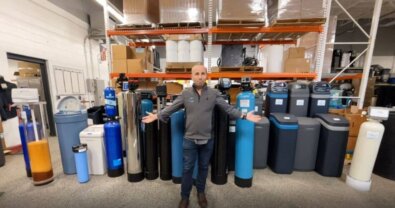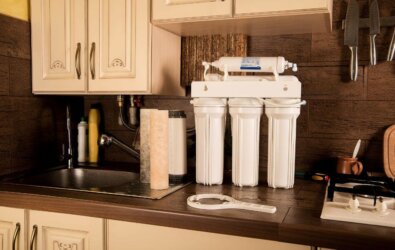How to Find Signs of Contamination in Homes with Well Water
In this article, you will learn:
Visible signs, such as stains on your sink, could indicate high levels of iron and other acidic contaminants.
If your water tastes salty or soapy, it could be because of a high level of minerals such as sodium or chloride in your drinking water.
When your water smells like rotten eggs, it’s an indicator of sulfur bacteria in your water.
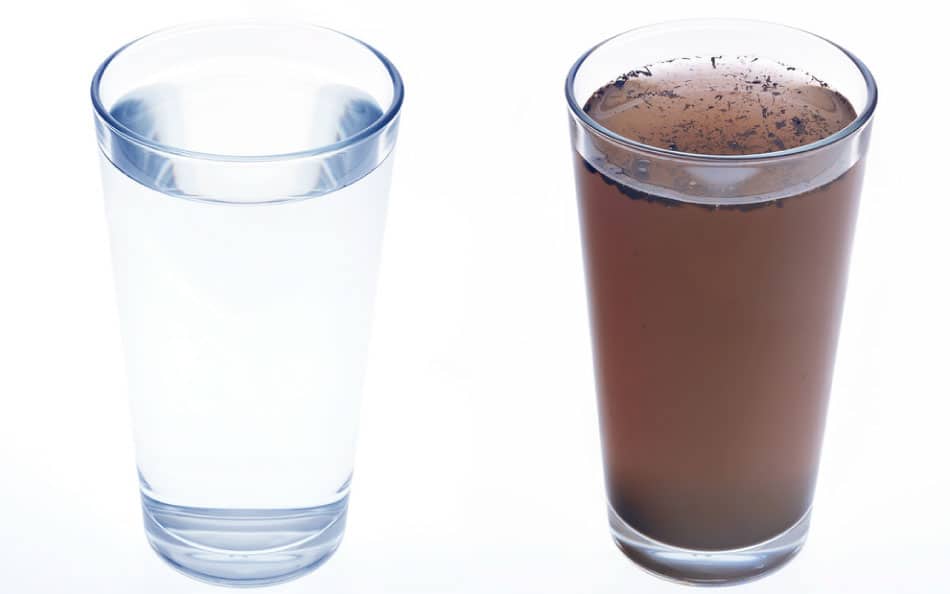
Homes with Well Water Aren’t Tested Regularly. Here’s What to Watch Out For!
Does your household get water from a well system, rather than public groundwater? If you’re in Illinois, there’s a chance you could be! The Illinois State Geological Survey has records of over 700,000 wells in the state.
One of the biggest differences between well water and public groundwater is regulation. The Environmental Protection Agency (EPA) regulates and tests public water supplies. However, for private well-owners, testing is left up to them and should be done annually.
So, how do you know what to look out for in your well water? At Angel Water, we believe in giving you the best information. Here are the warning signs that something could be wrong with your well water!
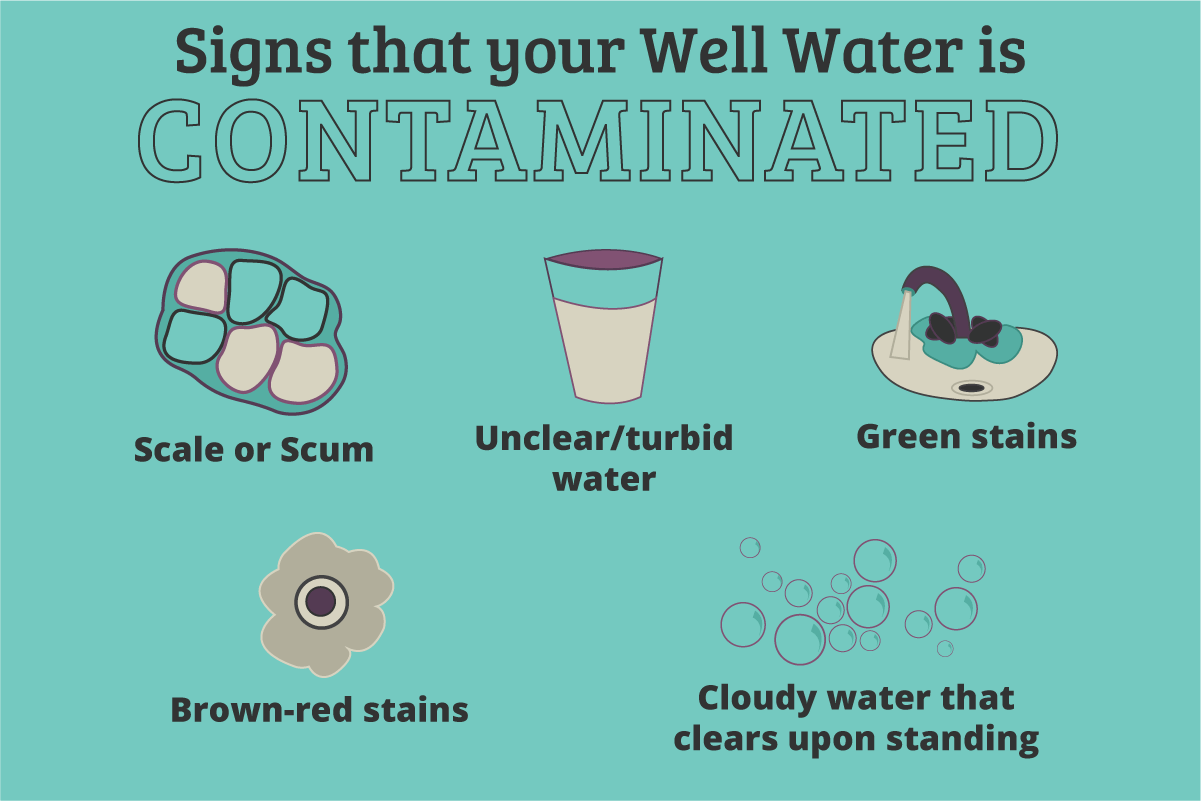
Visible Signs to Look Out For
Well water can leave visible signs that could indicate contamination in your water. Here’s what to be on the lookout for:
Scale or Scum
Scale buildup or a scummy feeling from water is often associated with calcium or magnesium. Both of these contaminants are minerals that, in high enough concentrations, create hard water.
Scale buildup is identified by a white-substance that clogs pipes, showerheads, and faucets.
Unclear or Turbid Water
When your water comes out of the faucet, is it crystal clear? Or does it look murky and muddied?
If it’s the second one, it could be the result of dirt, clay salts, silt, or rust in your water. Because of how well water is taken from the ground, it passes over different materials, such as those listed above.
When the water washes over those materials, it can carry the particles with it. That gives you the dirty water look in your glass!
If your water is unclear, it can also indicate poor plumbing problems. If your pipes are corroded or rusting, those particles will end up in your glass as well.
Green Stains on Sinks or Faucets
Another visible sign to look out for in homes with well water is stains on areas that use water. Green stains on your sinks and faucets could be an indicator of a high amount of acid in your water.
Acidic contaminants, such as iron, magnesium, copper, and zinc, leach into your water through the pipes and other natural deposits. These contaminants corrode and weaken your pipes. They also carry health risks, including:
- Vomiting
- Diarrhea
- Kidney disease
- Liver disease
- Stomach cramps
- Nausea
Watching out for green-tinted sinks and faucets is crucial to stop those contaminants from ever reaching your water!
Brown or Red Stains on Sinks, Clothes, or Dishwasher
Another stain color to look out for is brown or red. While a green stain could indicate many different acids in your drinking water, this color often signals dissolved iron.
Iron deposits that show up in these places indicate a higher-than-normal level in your drinking water. Like the other acids, too much iron can have health risks, including damage to the heart, liver, and pancreas.
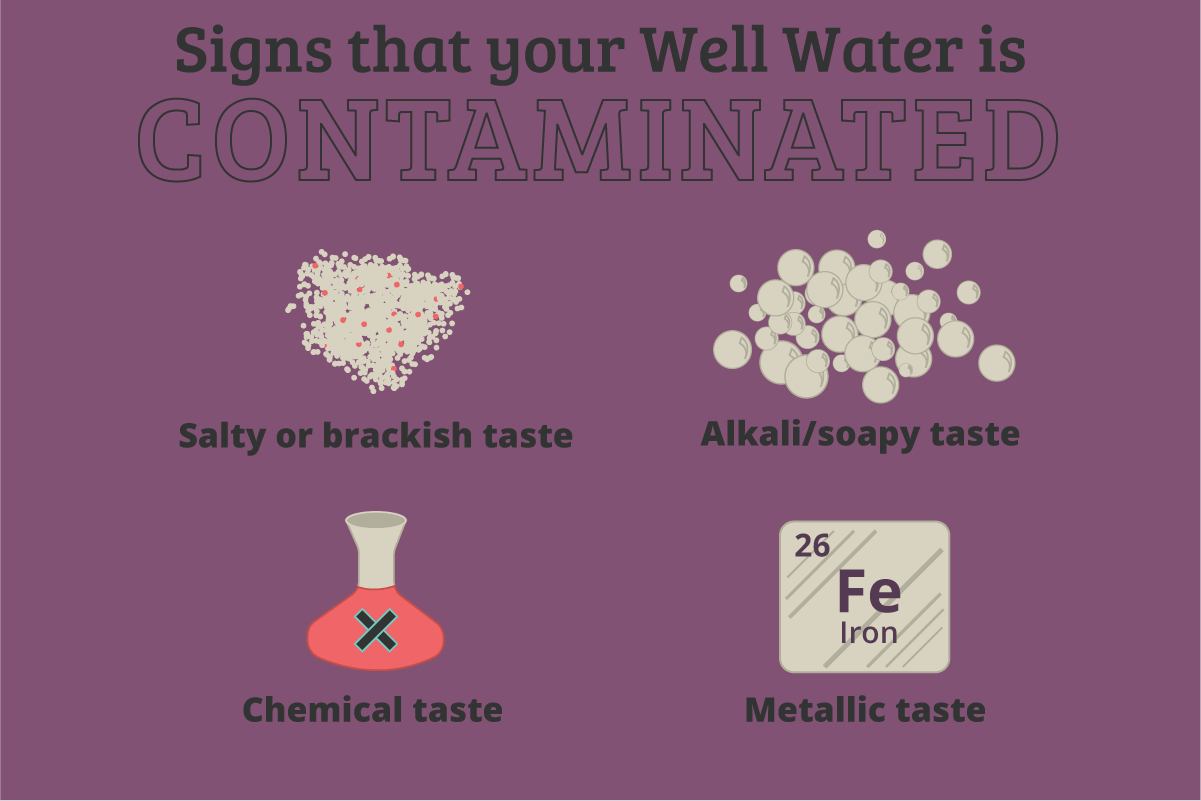
Taste Signs to Look Out For
We want your water to taste good! Water gives you life, and it should be something you want to drink. Unfortunately, if there are problems with your well water, it shows up when you taste it.
Some of the areas to watch out for when tasting your water are:
Salty Taste
If your water has a salty taste to it, it could be because of high sodium or chloride content.
Sodium and chloride form when salt dissolves in water. These two substances occur naturally in groundwater. However, they can also enter your well from road salt, natural salt deposits in the ground, sewage, and fertilizer.
If you live in an area where there’s a lot of farmland, this can increase the levels because of the fertilizer used. It seeps into the ground and runs into your well water.
High levels of sodium or chloride can be harmful to those on a low-sodium diet. And high levels of chloride corrode and damage your plumbing. This leads to an increased cost of repairing your plumbing, water heaters, and appliances.
Soapy Taste
When you take a sip of water, does it taste like soap to you? If it does, this could mean that you have high levels of alkaline minerals in your water.
Alkaline minerals include calcium, potassium, magnesium, and bicarbonate. While these minerals, in low enough levels, aren’t harmful, they can be at higher levels.
Health risks of high levels of alkaline minerals in your water include gastrointestinal issues and skin irritation.
Furthermore, if there is too much alkalinity in the body, it could upset the body’s natural pH level. This disruption can lead to metabolic alkalosis. The human body self regulates its pH.
Chemical Taste
Have you ever gone swimming and accidentally swallowed a mouthful of pool water? If so, then you’re familiar with the taste of chlorine and cleaning chemicals.
Having a taste of chemicals in your drinking water is no fun. If your water tastes off or funny, it could be because of the nearby chemicals or pesticides.
Pesticides and chemicals, especially in industrial areas, runoff and seep into the groundwater, just like fertilizer. They contaminate homes with well water and can have serious health risks.
Want to get more helpful water information delivered to your inbox?
Sign up for our free email newsletter!
Most of the time, however, the levels of pesticides in your drinking water won’t be high enough to cause some of the more dangerous effects.
High enough levels of chlorine and other chemical cleaners, however, have been linked to heart disease and cancer.
Metallic Taste
Does your water have a metallic taste to it? Like visible signs of stains on the sink, acidic contaminants also have a particular tell. That is, it tastes like metal.
If you drink water and it tastes like pennies, for example, it’s an indicator that acidic contaminants in your water are too high.
As we mentioned above, acidic contaminants can cause problems with your pipes. They also carry significant health risks, such as gastrointestinal issues and skin irritation.
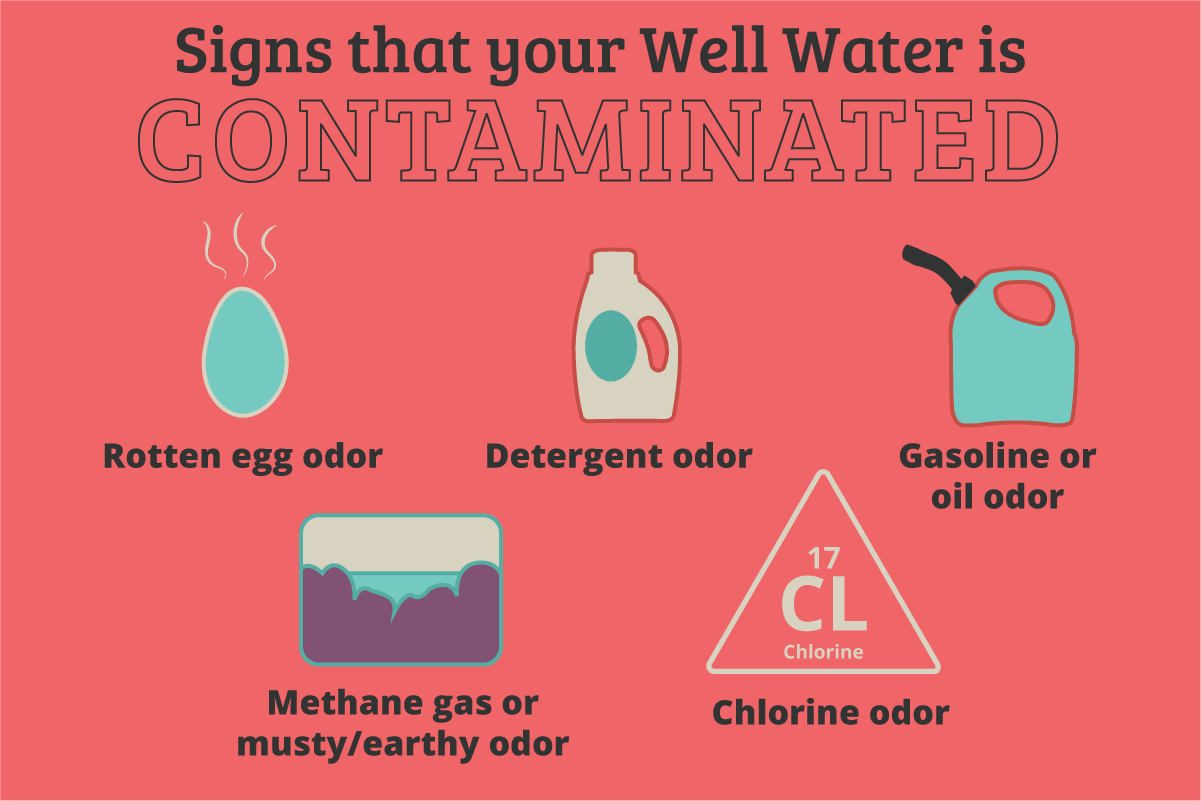
Smell Signs to Look Out For
Finally, there are different smells you should watch out for in your water. These include:
Rotten Egg Smell
One of the easiest ways to determine if your water is contaminated is by the smell of rotten eggs.
A rotten egg smell points to sulfur bacteria or hydrogen sulfide gas in your water. Sulfur bacteria are naturally occurring. This bacteria forms through decay and chemical reactions with soil and rocks.
Sulfur bacteria produce a slime substance that helps other bacteria, such as iron bacteria, grow. It can also produce hydrogen sulfide gas. Hydrogen sulfide gas can be harmful at high enough levels.
The health risks of hydrogen sulfide gas include nausea, headaches, delirium, and skin and eye irritation.
Detergent Smell
Does your water smell like laundry detergent? This indicates that maybe a septic tank has leaked into your water well.
Septic tanks, for obvious reasons, carry a whole host of bacteria and contamination that could be harmful to your health. If your water smells like detergent, have it tested to make sure there’s nothing seriously wrong.
Chlorine Smell
The smell of chlorine can be an overpowering one. You’ll know it if your water starts to smell like water in a swimming pool.
If your water smells this way, then it could be the result of excessive chlorination.
Chlorine, along with other chemicals, is used to treat water. And while a small amount of chlorine can help your water, a lot of it can be harmful. Chlorine in drinking water and other chemical treatments may result in cancer, birth defects, and asthma-related issues.
What to Do Next
If you detect any of these symptoms in your water, there are a few things you should do.
Have Your Water Tested
If you detect any of these symptoms in your drinking water, it’s best to have your water tested. Because the EPA does not put out an annual report on well water, you won’t know what’s in your water unless you get it tested first.
You should have a certified well contractor inspect your well system at least once a year. This helps detect any significant problems. You can also see how your water changes year-to-year.
Try to at least check your well every spring. You should be checking for mechanical issues, coliform bacteria, nitrates, dissolved solids, and pH levels.
Install a Water Filter
You should also look at installing an NSF-certified water filtration system. Water filters, like our reverse osmosis systems, trap contaminants before they ever get to your glass. Only a water filtration system can defend your water at all times.
Be Aware of What You Put Down Your Drain
It is important to keep your septic tank clean. It’s not a good idea to flush things that could be thrown away or dump harmful chemicals down the drain.
Doing this can cause complications in your septic system. They may even destroy the helpful bacteria within. When septic systems fail, that poorly treated household wastewater is released into the environment. That results in substantial health risks. It can even impact public drinking water.
And if you want even more information about well water contamination, check out this video below!

Well Water Should Be Clean Water
We believe that your well water should be as cleaner and healthier for you and your family! If you want to see what could be in your water, try our Water Wizard! It’s a free online water assessment quiz.
And if you want to see how else we can help make your water cleaner and healthier, give us a call at 847-382-7800 or stop by Angel Water today!

Editor’s Note: This blog was originally published in September 2015 and was updated in July 2020.
Interested in a Water Softener System for Your Home?
You don’t have to live with a dry, itchy scalp and brittle hair anymore! It would be our pleasure to help you find the right water softener to make your showers enjoyable again.
Please give us a call at (847) 382-7800 or visit our water softener page to learn more.
